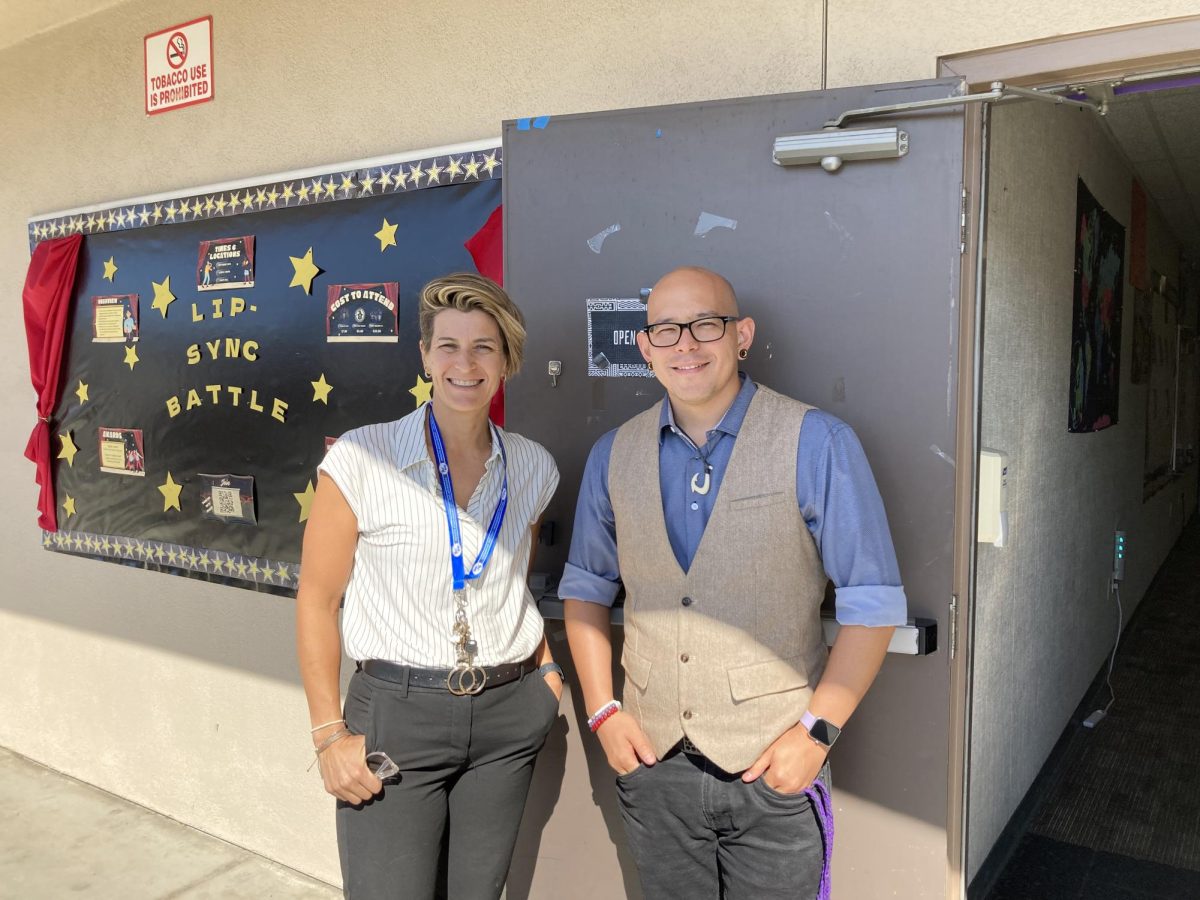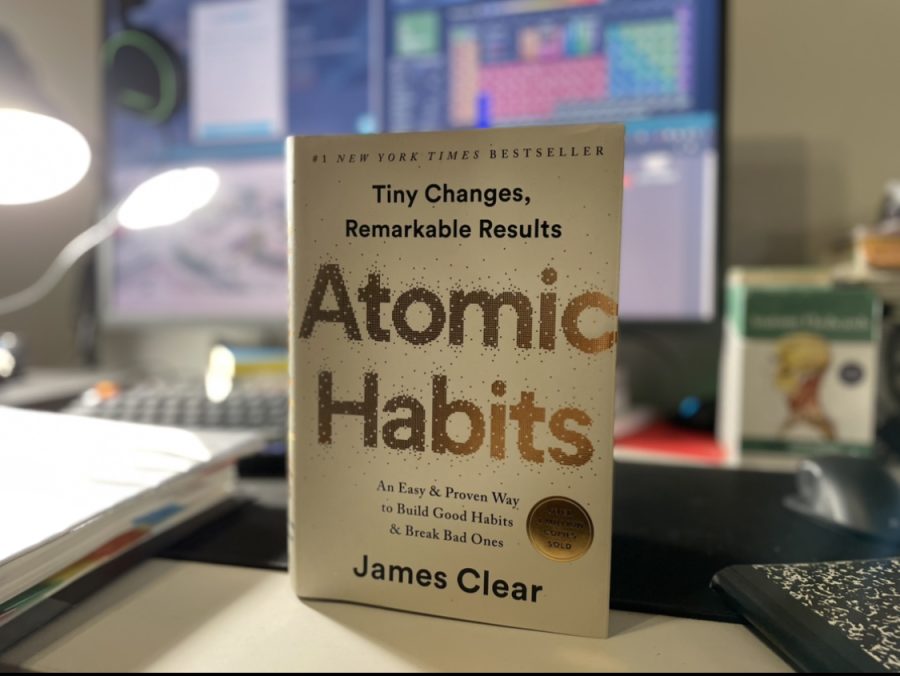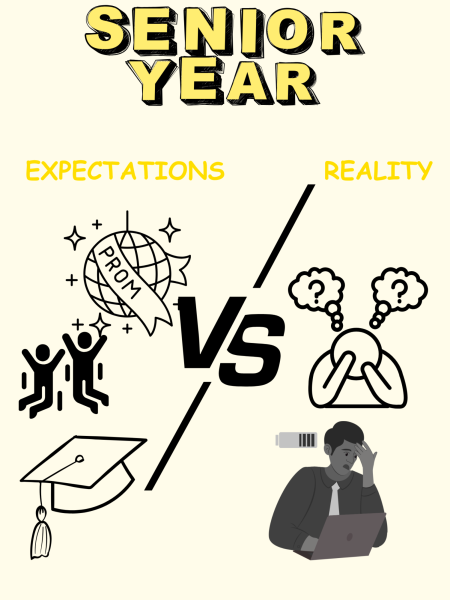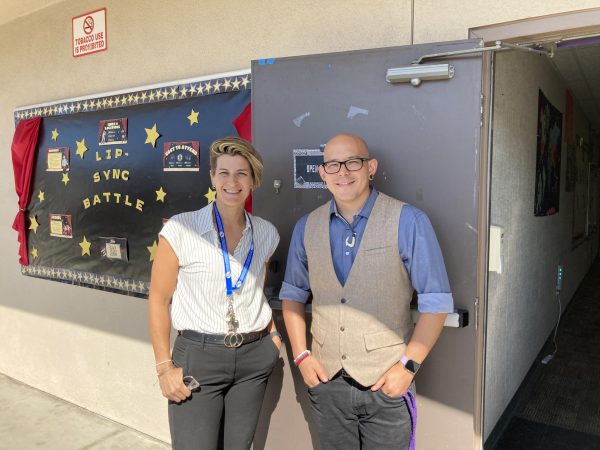The seemingly inescapable insufficient sleep cycle: Using proper sleep to your advantage
A controlled sleep schedule promotes good sleep, healthier habits, better self control, and more time to engage in leisure time activities.
A message from the author
Initially, note that I am not required to write the amount of text in this article. I can certainly write a few paragraphs worth of information and likely get a good grade for it, too. I have written this much because I find the topic to be very significant. I believe it can be beneficial if approached correctly. The work below is based on my experiences from the past four years as a dual-enrolled high school student and how new responsibilities made school years increasingly difficult. I eventually was able to figure out how to handle my responsibilities with quite the radical change. I had essentially realized that the hours during the day weren’t something I could use to be productive; it never went well when I planned to use the day for something like homework, studying, or anything alike. So instead, I began using other hours of the day, specifically, the early hours of a morning. I began sleeping at 8 p.m. to give myself enough sleep before waking up at 4 a.m. Though it has been a drastic change, one that not everyone would live by, I have certainly benefited from this. I hope to share that and much more throughout this article. I am approaching this article with great seriousness. Once more, it is important to me. Despite finding a way to make this workload “work,” I have limited time, and writing an article this extensive was not something I needed to do. I am doing this in hopes that someone else will benefit from it– or at the very least, find it inspiring in some way. Though I may not be able to completely cover this topic, I hope to at the very least start a discussion, or spark the thought of it to the readers.
I have also written this with the style of writing I’ve seen in philosophical text. I’ve taken one philosophy class in the past, and am taking a second one right now. The style of writing can be confusing, but it eventually becomes really fun to read over time. My writing likely isn’t close to any philosophical text, but I really wanted to try the things I’ve seen from texts like René Descartes’s “Meditations on First Philosophy,” or Plato’s “Euthyphro.” I specifically loved reading Descartes’s Meditations since it was one of the first things I read in Philosophy. The reading goes over many things, the most interesting of which to me is Descartes proving the existence of oneself (which, according to Descartes, is the only thing we can really be certain of). “Cogito, ergo sum,” which means “I think, therefore I am,” is the conclusion Descartes arrives at; that whenever we think, we prove our own existence. This reading is very challenging but also extremely interesting. Plato’s “Euthyphro” is essentially about a conversation between Euthyphro and Socrates, who is being prosecuted for disrupting the religious faith of the youth in Athens (since some of Socrates’s philosophy went against religious faith). This is more of a story based text, but it can also be a little confusing considering the things discussed between the two individuals. Once the readings begin making sense, it really helps you see the ideas from a new perspective. Once more, my writing isn’t a perfect imitation of those texts (or the philosophers for that matter), but it should explain why my writing in this article is the way it is: it was inspired from philosophical text. The best I can say is that reading more than once helps; and as my professor once told me, “slow down.”
Preface: What this article is about
Leisure time, work, responsibilities and sleep. Most of our daily actions or activities usually fall under one of these categories. We appreciate leisure time for hobbies or fun activities with friends and family. We also make time for work (or schoolwork for students) to be seen as successful and get to where we may want to be in life. Beyond this work, are other responsibilities such as chores or errands. Yet, we must find the time for sleep– we are human, and without sleep, the effectiveness of our functionality drops noticeably (sometimes not to ourselves, but certainly to those around us). It is often seen that one of these has to be given up for the other three to be met; this is often the case with students, especially in college. With the exception of a few cases or scenarios where the person truly doesn’t have enough time for all four, is a sacrifice of one of these really that necessary?
During the first three years of my high school experience– freshman to my sophomore year– I sacrificed sleep and leisure time on countless occasions. I became unknown to previous friendships and it became rare to see me with my family outside the home for reasons other than school responsibilities. I believed at the time that my workload could in no way increase in terms of intensity. As time went on, however, I found my workload becoming increasingly difficult to handle, forcing me to make more and more sacrifices as time went on. Though I was passing classes and moving on to the next step, I was making hurtful decisions, some of which ended friendships that had gone strong for many years. It may have not been the same for everyone, but use me as an extreme, yet real example.
I’ve decided to write this article because I believe that the experiences I’ve had over the past three years are worth mentioning to other people. The experiences have led me to develop a philosophy or form of thinking that I have been working to abide by and for the most part it has been beneficial to me. I haven’t given this way of thought any specific name, but what’s important is that it supports a strict cycle of sleeping at a predetermined time, waking up in a similar manner, to work ahead of one’s schedule. That is, working one day ahead, because the person that takes on a workload as it approaches them, will find themselves to constantly be at the edge. Working ahead at least by a day is smarter and more effective in the long-run, especially if an occasion arises where the individual is unable to work for whatever reason. That said, this may not be the case for everyone. I would simply like to show my experiences and the philosophy I’ve created for myself from said experiences. Even if my philosophy, mindset, and way of life doesn’t work for you after you’ve given it a chance, I still encourage you to experiment with either my work or your very own. I did not seek counseling to make the second semester of my senior year work, I simply developed in a way that was beneficial to me. Don’t be afraid to do the very same for yourself. Most of you have lots of time before senior year; use that time wisely to experiment and learn what works best for you.
The introduction: The beginning of this journey
The workload of school often forces some students to work late at night, depriving them of sleep and other necessities for a healthy life; I used to be one of those students. Even in freshman year, I struggled to get work done on time and have a proper life outside of school. The only way I was able to get all the work done was to give up a healthy lifestyle, leading to nights with little sleep becoming the norm. My situation remained this way for the majority of my time in high school; things only got more stressful and never let up, so I’d always be put in these scenarios where I either couldn’t get enough sleep to turn in work, or couldn’t turn in work on time because I was getting sleep. Beyond just basic sleep, countless things would seem to get in the way of my success. It seemed no matter how hard I worked, the day wasn’t enough to complete my work and meet all my wants and needs for a happy and healthy life.
So what changed in my senior year of high school when I suddenly was forced to take three major, rigorous college courses that had the workload equivalent of a full-time college student? Why was I suddenly getting more sleep than any three previous years of high school when my workload was more intense than ever before while still maintaining the grades needed to pass?
The situation
Consider the following real scenario: on any given night, I sleep late– around 3 a.m.– and don’t get enough sleep. The following school day, I am drowsy. I decide to sleep during a class, ultimately missing the class instruction and classwork that was done with the instructor. The following day will be challenging for me since I will not only have to keep up with upcoming classes but make up for sleeping in. The classwork done during class will be marked missing until I complete it and turn it in for grading; if any homework was given, it will be challenging since I missed the lecture for it. So, I have at least two assignments that will be a major challenge for me to complete. To make up for this, I’ll likely use the late hours of the night to get the work done in hopes of turning it in before it impacts my grades negatively (note: this would be more detrimental to my grades prior to the pandemic. We now have policies that give us a minimum 50% grade, and no late penalties). Now, let’s go back and think about the first instance: “I sleep late.”
This is no scenario fabricated to support my point; this is a real scenario that has occurred and continues to occur to fellow students. In short, this is a cycle that leads to insufficient sleep and many other resulting issues. Even though a student no longer should have to worry about late penalties, it becomes difficult to go catch up once you fall behind. With the intent of not falling behind, students end up sacrificing a healthy sleeping schedule to complete work that has been previously missed. Either way, the student is giving up sleep to pass the course; as stated earlier, a low amount of sleep will put them in this cycle of insufficient sleep. For simplicity, I will refer to a broken sleep cycle as the “insufficient sleep cycle,” which is a domino effect that seems inescapable to the person experiencing it. Even if students don’t fall asleep during class, it is probable that they will be unable to focus. Classwork will remain a challenge and most won’t retain much at all after the class period has passed. Only in breaking this cycle can someone hope to get back to equilibrium, which would be the “sufficient sleep cycle.”
Consider the following: Foundation for the philosophy
Decisions themselves determine the reality we set for our future selves. The reality you are living in right now is a result of the decisions you made in the past. To explain this, consider that the reality we find ourselves in is a result of our decisions-things we can control-and simple life-those things which we cannot. If you ask yourself why you’re here (in terms of this situation), you will likely find that it is because of your decisions, which you made, and life itself, which you have to live by. You made the decision to read this article, and you have to go to school by law. Though it is an example, some readers may find themselves in that very situation: reading this article at school. Both statements would have to be true for this to be your current reality or situation. What becomes evident from this analysis is that our physical presence in situations is the result of life and decisions. In short, each decision affects the next and the result of decisions is a mixture of something we can control and something we can’t. Realizing this is simple, it’s not groundbreaking, but the understanding of this fact helps us see decisions with more significance.
If decisions help decide the outcome of our life, we should certainly take them more seriously. This can help us see the real example I provided earlier in the text; we can see how I would have ended up in the situation I was in. The recurrence of the “insufficient sleep cycle” is the mixture of life, which is now the fact that I am sleep-deprived and unable to focus, mixed with my decision making, which will usually be to stay up late making up the work I’d miss during the day. I would have to decide to sleep earlier to break the cycle, making my life change: it is now the fact that I am well rested and able to focus. Perceiving our life to be a variable that can change based on our decisions is a concept, but it helps us see how our decision-making changes our situation. More realistically, our decision-making and the way we approach situations influence the situations we find ourselves in.
In the study of economics, we learn that every decision we make has an opportunity cost: which is what could have been done but wasn’t. For example, if you decide to spend one hour of your life watching television rather than doing homework, the opportunity cost for the hour of entertainment is the same amount of time that could have been spent doing homework. Economics also teaches us about the concept of scarcity: the state (of an object) to be in high demand, yet isn’t available to the extent that is preferable. Even though time isn’t a physical object we can hold like a resource, time is a perfect example of a scarce resource. It is almost always in high demand– especially for individuals who have lots to do but not enough time and just as the definition of scarcity states, time is not something that can be retrieved.
Using time effectively: Wise decision making over periods of time
From the beginning of any given semester to the end, we have a specific allotted number of months, weeks, days, hours, minutes, and seconds. This amount of time does not change and we must all complete our classes during this time. Now consider the definition we have set for the time in the previous paragraph: a “scarce resource,” something we cannot gain back, and something we all need (especially during the end of the semester). Now think about how we make decisions, all of which have an opportunity cost. The major takeaway that we must realize is how every single decision made during any given semester, whether it is big or small, will ultimately decide what happens by the end of the same semester. Once more, this is no major breakthrough of any kind, but realizing how important every decision is will help us use the time we have wisely. One wrong decision won’t make us fail in this scenario, but the accumulation of many wrong decisions certainly will.
The solution: What should you do?
Fixing problems is different for everyone; from the approach to the method, there are many things that aren’t alike. Despite this, there may be a common way to fix the problem we find ourselves in with the “insufficient sleep cycle.” Let’s review that we all have different, unpredictable lives that we cannot control. Every decision we make has a cost and time is scarce while being irreplaceable. Though we cannot do anything with the day itself; we will always have the same 24 hours of the day to work with, and even if a person is able to make the right decisions, there aren’t enough hours in the day to meet all the needs and wants of some people. At a certain point in one’s educational journey, they will make the discovery that there sometimes isn’t enough time in the day for someone to get their work done on time. This will likely be the case in graduate school, and possibly even in undergraduate studies. Whatever the case, the workload will become increasingly difficult. Even for the smartest of people, work can become time-consuming. In terms of success, it isn’t just a matter of how smart they are, hardworking, or determined, nothing can beat the passing of time. Though we cannot give ourselves more time, we can surely change the way we approach the time we have.
Consider that a person goes to sleep early, gets adequate sleep, and decides to wake up at 4 a.m. If this person is a student and needs to attend school by 8 a.m., they will have four hours to get ready. This time can be used in whatever way they prefer: completing homework assignments or missed classwork, eating a good breakfast, and even having enough time to get to school early. If used wisely, this time can be very beneficial for the student since the work they would have to do during the day can be done now. Any remaining work from the previous day can also be done at this time, leaving them virtually free for the time after school. For those who’ve experienced guilt while enjoying their hobbies while they still have remaining work, this can be a great solution. If more work is assigned, the student can have the wakefulness and energy to complete the work, rather than lingering between falling asleep at their desk and answering the first question on the page, on which they’ve been stuck as a result of their drowsiness.
Taking this example a step further, we can predict that the student will likely be able to focus better in class as well. Sufficient sleep from the previous night will allow the student to stay awake and aware during class instruction. Though class instruction won’t give them the answers for their classwork or homework, it will certainly help them complete assignments once they’ve been exposed to the material. Instead of a domino effect where the student needs to stay awake to do the work they were unable to complete during the day from drowsiness and insufficient sleep, the student now can have proper awareness to complete the work and have a clear mind needed to make proper decisions. There are numerous benefits of sleeping earlier to have more time in a day with a well-rested mind.
The only downside to this is that the person would have to build on their self-control to use the time in the morning wisely. Since there is no one there to judge them, and from all the possibilities of how they can use their time, some individuals may feel compelled to use this time for leisure activities that they can’t do during the day from responsibilities. However, it is still worth mentioning that by employing this way of living and building upon their self-control to better use the time they have, the individual will be able to live a proper life where they may find themselves naturally having enough time to not only accomplish their work responsibilities but also to enjoy their hobbies without the stresses of responsibilities. After all, the point of this form of living is not to force a person to work for four hours before going to school, but rather to give them four hours of time before school, where they can work or do as they please and feel the benefits of proper sleep. Insufficient sleep truly leads to a bad cycle and simply sleeping early and using time effectively is a good change. It all matters about how we approach things. Students’ situations in school are no different. The same applies to the time a person has, the outcome depends on how we decide to use the time.
For those wondering if someone can stay awake from 4 a.m. to 8 p.m. while also remaining awake through classes and avoiding naps– yes. It is certainly possible and without issues as well. It’s not very challenging at all once the brain becomes accustomed to a schedule. I’ve learned from experience. What I’ve stated is my current sleep and wake schedule (with some differences). More on this and how others can also use such a schedule to sleep and wake up properly a little later in this article. As far as I am aware, that is not a term on the internet but will be the definition I will use.
The action: How to make the switch
Suppose that a student is stuck in the “insufficient sleep cycle,” where they stay up to work and experience the consequences of it during the school day, leading to a domino effect. What should be the course of action to change things and get the person into a position where they sleep earlier and preferably also wake up earlier? An important note is that this student is likely staying awake because they have to and need to remain with the class to ensure their grades don’t suffer. Unfortunately, the only way to start the “sufficient sleep cycle” is to either sleep earlier and wake up earlier, the latter being more important. Waking up early is more important since it is what will make the first instance possible. If someone sleeps in, going to sleep early or on time can become challenging-though, not impossible.
An ongoing discovery
Something such as this is unique to every person. I myself am still experimenting with different sleep times and wake times, which can fluctuate. I hope others decide to experiment with this too. Waking up early and using time wisely to be productive gives the person a sense of control that motivates them to do more throughout the day. It all starts with one small step. Once I woke up early and had the time, I found myself learning new things and trying new things that I didn’t have the time for before. If I’d have the time, I’d add more to this and write more about the mindset I believe is important.
For the same reasons I decided to implement this change into my life and write this article, I have to end it short; this semester is entirely new to me, and likely the most important in the past four years. I encourage future writers to write about this more as well as the other articles I’ve written. Maybe I haven’t been able to touch on these subjects enough, but others may be able to do that in ways I haven’t been able to, so I encourage you to look into such topics. Even for those who aren’t writers, I think this subject is important; I hope others see the significance of something as simple as sleep. For more insight on mindsets, and what motivated me to write an article based on philosophical thought and mindsets rather than topics similar to the other things I’ve written about, I encourage you to read “Atomic Habits” by James Clear. Though I am only one chapter in, it’s certainly worth reading before embarking on college. I cannot be certain that the book talks about the same topics being discussed in this article, but it does cover things related to making improvements, your mindset being one of them. One of the fundamentals talked about early in the book is the Aggregation of Marginal Gains, for example. The ideology of aggregation of marginal gains promotes the mindset that little things add up overtime. Though I didn’t cover that in this version of the article, it is something that motivated me to write this article. For those reasons and more, I would suggest reading “Atomic Habits.” Even if someone isn’t much of a reader, or they don’t think such topics interest them, I still hope they read the preface and the first chapter. It may encourage further reading.
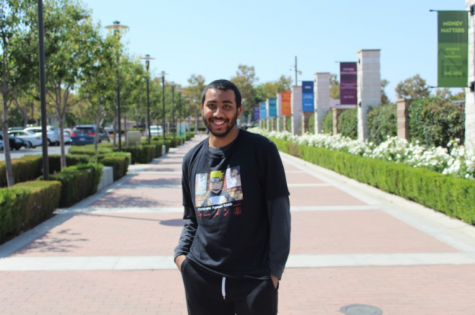
I love rain, I love cold weather with a cozy setting, and I want to learn multiple languages.



